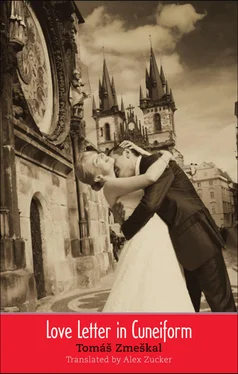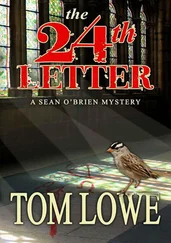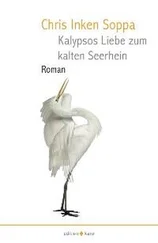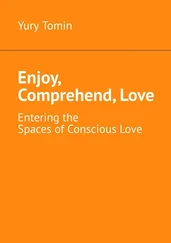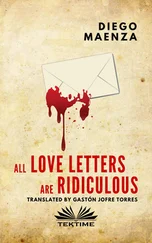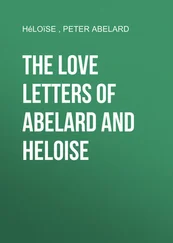And so the foreign-made electric motor proceeded to raise the gate at the main entrance to the psychiatric treatment center, its well-oiled sound carrying through the morning mist almost — elegantly. It faintly reminded the guard of his neighbors’ well-fed angora cat, who as far as he could tell did nothing but eat, drink milk, sleep, and purr. The pampered bitch didn’t do a damn thing else all day. The police car entered the hospital complex, the gatehouse guard rocked up on his heels one last time, and now at last the day could successfully begin.
The car pulled up to a pink-colored pavilion. The officer stepped out of the car, slammed the door shut, turned and looked at his two colleagues seated in the rear with a small man between them, then turned back to the building, walked up to the front door, and rang the bell. He waited a while, shifting his weight from one foot to the other. It was obvious from the way he moved that his concentration was slipping away. There was the sound of footsteps, then a man in a white coat and cotton pants opened the door, releasing a blast of sharp-smelling institutional air into the balmy morning breeze. It entered the policeman’s nostrils without anyone bothering to ask whether he liked it or not, evoking memories of long hospital corridors. Corridors with walls divided by a stripe of oil paint running horizontally at eye level. The washable walls, tiled floors, and green and yellow paint always gave the officer a headache. He’d never given it too much thought, but the smell of that useless, cheap disinfectant interrupted his train of thought and put him on edge. If he could have, he would have sealed up his respiratory openings like an animal from some imaginary planet, or strapped on an oxygen tank like a deep-sea diver, so he could walk down the long green-and-yellow corridors without having to breathe that dishonest air. For now, though, the policeman just shared with the man in the white coat the facts that constitute the empire of the institutional universe. He informed the hospital attendant standing before him of the irrefutable facts, the facts of the arrival of the detained citizen, the facts substantiating the existence of one detained living body, three persons of authority, and one automobile. These definitions and descriptions lent his brief discourse the flavor of a meeting of medieval negotiators from a long extinct empire, who, unexpectedly and inconveniently, under dispensation from some imperial or divine authority unknown to them, are to transmit and see to the implementation of Kepler’s laws of planetary motion, which neither of them understood very well, or which they both understood only approximately . And yet, without anyone’s asking, it is their responsibility to see to it. It is their responsibility to see to the conjoining of two unconnected empires in accordance with laws they neither know nor understand. It is their responsibility to see to the transmission of a peculiar gift, a curious avian wedding ritual involving neither dancing nor praying. And meanwhile both of the pragmatic old fellows, even as they discuss the details of the instructions, are far away in their minds.
The two men stepped through the door and from outside heard the sound of the door locking. The orderly, leading the police officer, walked in front. After a few yards they stopped at another door, which the man in the white coat unlocked. He let the policeman in, then walked through the door himself and shut and locked it from the other side. The policeman had been here several times now and was always glad that he had not only his uniform but also his gun. His gun with seven rounds in the magazine, albeit with the safety on and resting in its holster, well maintained and well loved, giving him a true feeling of power that from time to time he contentedly felt spreading through his soul. True power, not papers and rubber stamps, not the filling out of forms, not attending training and learning new regulations and legal amendments by heart, but his well-maintained and well-loved gun, that was true power. If his superiors had known more of the world of his ideas and, God forbid, his private thoughts and feelings, they would surely have had reason for concern. He knew something fundamental, though. He knew that true power, whether the medics locked or unlocked the door, was slumbering in the holster hanging from the belt of his uniform, and that this true power of his had the number seven. The number of bullets in the magazine was the sum of his power. Then he reminded himself that his commanding officer had already negotiated everything in advance and impressed upon him the need to speak to the doctor briefly and clearly. Which the policeman had fully intended to do. However, at the last minute something had changed, and before they left the police station someone called from the hospital telling them not to come to the admissions unit but straight here, to the pink pavilion. Somebody somewhere had suddenly remembered that they had the detained man’s medical card, so they had come here and the policeman was here now. On the one hand this procedure always surprised the officer, and on the other he found it tiresome, but at the same time it also made him feel his work had meaning. He had long been aware that it wasn’t just catching criminals or maintaining order or some abstract idea of law. Increasingly, he found himself performing clerical duties, and he wasn’t sure it was right. He was irritated by the lack of clarity, which nobody was dealing with. The two men came to another locked door, which was almost in the middle of the long corridor. The man escorting the policeman knocked and waited. There was no answer and after a while he gave the policeman an apologetic look. When he knocked a second time, the door opened. On the other side stood another man in a white coat and white pants, a doctor. He opened the door wide, told the orderly he could leave, and showed the policeman to a chair. The policeman sat down, nodded thank you to the doctor, unbuttoned the chest pocket on his uniform, and took out a small notepad. The doctor offered him coffee and a cigarette, but the policeman declined both. Although he had assumed he would just hand over the detainee to the doctor, the matter turned out to be more complicated than he had thought. The deputy chief at the precinct station had explained the case in detail over the phone to one of the doctors here, but as of this moment that doctor was nowhere to be found. Watching and listening to several phone conversations in which one of the doctors tried and failed to find the other one, the policeman realized that he would have no choice but to try to explain the whole thing himself. He wasn’t happy about it, since that meant complications, but for the time being he sat indifferently, gripping his notepad in his hand and looking out a large, wide, barred window at the tree branches swaying outside. He couldn’t hear the wind. He could just see the movement of the leaves and the branches, with the asphalt road behind them.
When Mrs. Marhoul, the neighbor of the later detained pastry chef Mr. Svoboda, called the precinct station, according to the police record it was two thirty-three A.M. Seeing as she was more than seventy years old and there was nothing unusual about her phone call, nobody paid it much attention. Mrs. Marhoul was an elderly widow who lived with a small pinscher, and the entryway of her apartment looked like a small country museum. There were two display cases of mineral specimens and one with polished flasks of various colors. A few pictures and drawings hung on the walls, showing views of Prague from different perspectives, and an unfinished drawing of a railroad station under construction that looked somewhat out of place. Mrs. Marhoul welcomed the officers in, but didn’t invite them into the living room or the kitchen, instead sternly informing them that they had arrived more than twenty minutes later than their colleague on the phone had promised. The two officers felt cramped between the display cases. First because her dog kept walking around them sniffing at them, and second because the cases seemed fragile, shaky, and liable to smash into a thousand tiny pieces at any moment. It was complicated to avoid the pinscher, what with the display cases on three sides and Mrs. Marhoul on the fourth. Then the old lady decided to give them a lesson in mineral collections and the geological bedrock of Prague and its surroundings. Originally the officers had thought she was just being polite, but by the time they realized what was happening, they were up to their necks in an explanation of tectonic plates, fractures, and bedrock. It wasn’t easy interrupting her lecture, but the more experienced of the two men awkwardly managed to turn the subject back to the reason for her call. She wasn’t pleased, but she concluded her talk, saying that, as they could see, these specimens, which her husband had collected, and the pictures, which he had painted, demonstrated that the city and its surroundings were unrivaled. Unrivaled! She repeated the word several times with her index finger raised in the air. Unrivaled. Meanwhile the mineral specimens glowed phosphorescently through the glass of the display cases. Each piece rested on a lace doily, with its Czech and Latin names written on a now barely legible card. Before the police had a chance to ask, she informed them that the reason the framed drawing of the unfinished railroad station was hanging on the wall was because her deceased husband hadn’t had a chance to finish it. When it seemed like she was on the verge of describing the last few months of his life in the hospital and the pulmonary sanitarium, the more experienced officer ordered her to lock her dog in the room next door or they would leave. That provoked the reaction he hoped for. The old lady was insulted by his lack of manners or respect for old age and finally got to the point. When she spoke about her husband’s death, there was no longer even a hint of emotion; any feelings of pain or sadness had long since faded away. The seventy-year-old woman’s account was more like a lecture on national history than an ordinary description. Her desire to hold up her former marriage for admiration was too great, though it was the matter of least interest to the two officers. It had never even crossed her mind to call herself a widow, she was just the temporarily abandoned wife of an irresponsible husband, who in his declining years had suddenly had the bad manners to pass away. She still blamed him for it and was building up a store of condemnations, which someday he deserved to hear.
Читать дальше
